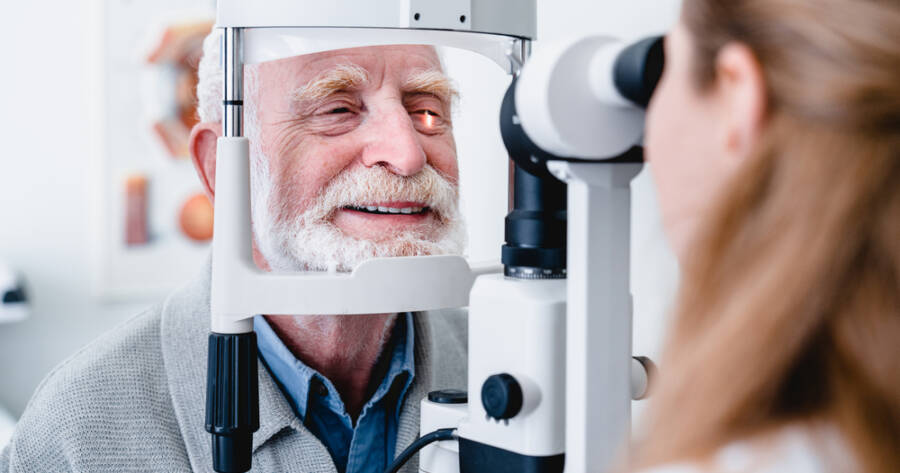Macular degeneration is a leading cause of vision loss, particularly in older adults. This progressive condition affects the central part of the retina, known as the macula, leading to blurred or reduced central vision. Early detection is crucial, as the warning signs can be subtle. Although there’s no cure, treatment options can help manage the condition and slow its progression.
What Is Macular Degeneration?
Macular degeneration is a condition that affects the macula, the part of the retina responsible for sharp, central vision. As the macula deteriorates, people may experience vision loss, primarily in the central field, while peripheral vision typically remains unaffected.
There are two main types of macular degeneration: dry and wet. The dry form is more common and progresses slowly over time, while the wet form is rarer but more severe, causing rapid vision loss due to abnormal blood vessel growth under the retina. AMD is the leading cause of severe vision loss in individuals over the age of 50, making early diagnosis and intervention crucial in preserving vision.
Don’t Ignore These Warning Signs of Macular Degeneration
Macular degeneration often develops gradually, making early symptoms difficult to detect. Some common warning signs include blurred vision, difficulty reading or recognizing faces, and a noticeable blind spot or dark area in the central vision. Another sign is visual distortion, where straight lines may appear wavy or bent.
As the condition progresses, these symptoms may worsen, leading to a more significant decline in central vision. Since peripheral vision is typically unaffected, individuals may not immediately realize their central vision is compromised. If any of these symptoms are noticed, it’s important to consult an eye care professional to get a comprehensive eye exam and discuss potential treatment options.
Causes and Risk Factors of Macular Degeneration
The exact cause of macular degeneration is not fully understood, but age is the primary risk factor. As people age, the cells in the macula may break down or deteriorate, leading to vision problems. In addition to age, other risk factors include a family history of the condition, smoking, high blood pressure, and poor diet, particularly one that lacks antioxidant-rich foods like leafy greens and fish.
Genetics also plays a role, as certain genes have been linked to the development of AMD. People with lighter eye colors and those with a history of excessive sun exposure may also be at a higher risk. Understanding these risk factors can help individuals make informed choices to potentially reduce their risk of developing macular degeneration.
Treatment Options for Macular Degeneration
Although there is no cure for macular degeneration, several treatment options are available to slow its progression and manage symptoms. For dry macular degeneration, there are no FDA-approved treatments, but lifestyle changes, such as maintaining a healthy diet rich in antioxidants, can help reduce the risk of progression. For wet macular degeneration, treatment options are more advanced, including anti-VEGF injections that reduce abnormal blood vessel growth and laser therapy to eliminate leaking blood vessels.
Additionally, low-vision aids like magnifying devices and special glasses can help people with AMD adapt to changes in their vision. Regular monitoring by an eye care professional is important to adjust treatments as needed and to prevent further vision loss.
Protecting Your Vision from Macular Degeneration
Macular degeneration is a serious condition that can impact your quality of life, but early detection and proactive management can help preserve vision for longer. By understanding the warning signs, knowing your risk factors, and seeking timely treatment, you can take steps to slow the progression of the disease.
Regular eye exams, a healthy lifestyle, and appropriate treatments are key to maintaining your vision. If you or a loved one is experiencing symptoms of macular degeneration, consult with an eye care professional to develop a plan for managing and protecting your eyesight.





